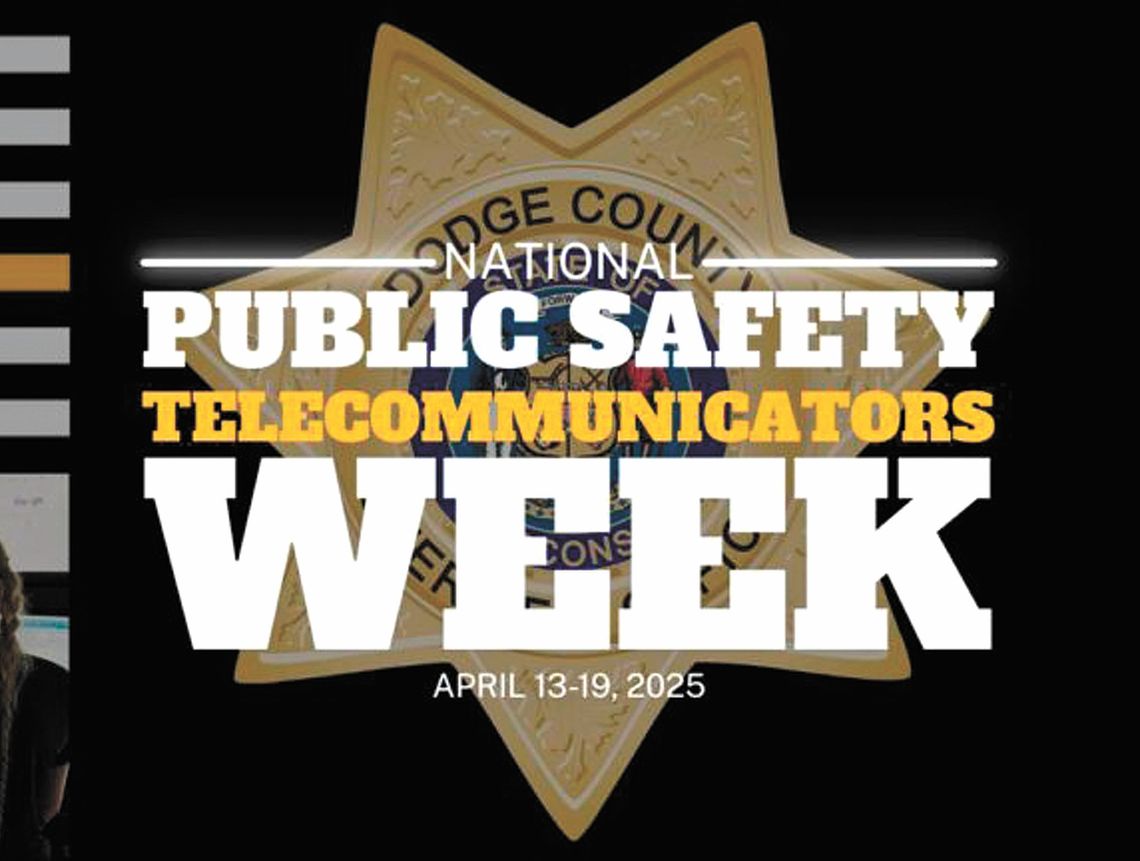This week, April 13–19, marks National Public Safety Telecommunicators Week, a time to recognize the voices behind the headset—911 dispatchers who are often the first link in emergency response. In Marshall County, a small but highly skilled team is being recognized for their dedication, professionalism, and calm presence in times of crisis.
The national observance has its roots in Contra Costa County, California, where Dispatcher Appreciation Week began in 1981. The story behind the celebration is a classic example of unexpected appreciation. That year, Sheriff Richard Rainey treated his administrative staff to lunch, unaware that the office phones had been forwarded to the dispatch center. The dispatchers—already short-staffed due to lunch breaks—were suddenly inundated with calls.
Patricia Anderson, a seasoned dispatcher, marched over to administration to confront the sheriff who apologized and promised it wouldn’t happen again. That afternoon, he arrived in the dispatch center with a giant cake reading, “Happy Dispatcher Week.” What began as a mishap became a moment of recognition—and eventually led to the national week of appreciation, formally acknowledged when President Bill Clinton signed it into law in the 1990s.
Today, that spirit of gratitude continues in Marshall County, where a close-knit group of dispatchers keeps emergency response running smoothly—24 hours a day, 365 days a year.
“Our dispatchers are the people in the background you don’t see, but do a lot to help us,” said Marshall County Sheriff Sam Swanson. “They gather all the information, ask the right questions, and make sure the proper people respond. They wear many hats. Our jobs would be much harder without them.”
The county’s dispatch team includes Deb Skonberg, 911 Coordinator with more than 20 years of experience; Arlie Siers, with a remarkable 50 years of service; Logan Roehr, who also serves as Emergency Management Director; and dispatchers Shari Schock, Kevin Winter, Sam Sanderson, and Bailee Yule.
Skonberg said the most rewarding part of the job is “being able to help people in possibly the worst times. Dispatchers are here for you 24/7/365. There will always be someone here to answer your calls. We are the true first responders even though we may not be physically on the scene.”
From dispatching law enforcement, fire, and EMS to administering breath tests and guiding medical emergencies like CPR or childbirth over the phone, the scope of duties is broad—and constantly evolving.
“It’s very advantageous to have local people working in the 911 center,” said Roehr. “People here know the area, they know locations and maps, and are able to help fast and efficiently.”
Each shift typically includes dispatchers managing both emergency and non-emergency calls. The tempo can range from calm to chaotic in a matter of minutes. Roehr described it as “some down time that can turn really busy very quickly.”
Training for new dispatchers is intensive and tailored. After completing several months of on-the-job training, new hires attend a basic telecommunicator course in Pierre, with ongoing emergency medical dispatch training required to stay current. Roehr noted the Marshall County Commission is “very supportive” of continued education.
Dispatchers rely on a variety of advanced tools—including RapidSOS, which sends location data directly from a caller’s phone, and Prepared Live, which enables video sharing from scenes—to provide fast, informed assistance. What used to be done with a single computer now involves six monitors, allowing dispatchers to manage a wide range of systems simultaneously.
According to Roehr, successful telecommunicators share key traits: the ability to prioritize, multitask, remain calm under pressure, and communicate clearly. “You need to be level-headed and understanding,” he said. “That’s what this team brings every day.”
Dispatcher Kevin Winter emphasized how the job impacts both the public and fellow first responders. “I like that I’m not only helping the community, but also keeping police, fire and EMS safe,” he said. “Dispatchers are the unsung, and not visible, heroes of first responders. We know what’s happening and where before anyone else.”
For Shari Schock, the role carries deep meaning. “It’s rewarding helping people who are getting their ‘new’ start,” she said.
Bailee Yule, one of the county’s dispatchers, summed it up this way: “You don’t know my name or what I look like—just the voice on the other end of the phone. But I leave each shift knowing I made a difference. That call could be life or death, and I do everything I can to get you help, fast and safely.”
As National Public Safety Telecommunicators Week shines a spotlight on the unseen work behind every emergency call, the Marshall County dispatch team stands as a powerful example of professionalism, compassion, and local commitment.
“They may sit in that little building,” Sheriff Swanson said, “but they do so much.”
CALM ON THE OTHER END OF THE LINE
This week is National Public Safety Telecommunicators Week
- 04/16/2025 10:04 AM



